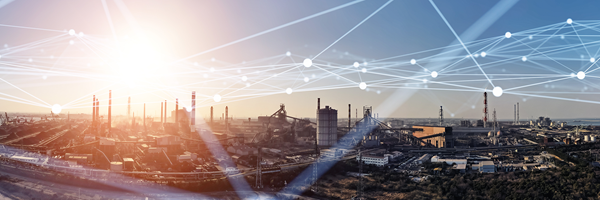- Grab the Galaxy S25 Edge for $170 off and get a free Amazon gift card - but act fast
- I found a free iPhone 16 deal that doesn't require a trade-in (and applies to Pro models, too)
- This 77-piece Milwaukee wrench set is still $200 off at The Home Depot
- Nvidia aims to bring AI to wireless
- Anthropic's new AI models for classified info are already in use by US gov
Standing Out With Sustainable Manufacturing

For The Climate And Your Costs
As I talk with all of my customers in the manufacturing space, one thread stays consistent: Manufacturing was one of the hardest hit industries due to COVID-19. The mass shuttering of factories, global supply chain challenges, and reduced headcount aligned to the Great Resignation has forced manufacturers to think about their evolution to stay competitive.
Because of these external forces, there has been a renewed focus on the needs of employees, customer satisfaction, new business models, and a desire to reduce costs and resources. What connects all three areas is the biggest challenge in our society: Sustainability.
So how can digitization help here? From my point of view sustainability is a medal with two sides and both are important for manufacturing. On one hand you have the effects on our climate and environment – on the other hand sustainability also means being resilient as a company against external effects.
As an example: Data from IMD World Competitiveness Center showed a quicker recovery of digitally savvy companies compared to other organizations since the economic downturn in March of 2020.
These graphs are representative of what most people already know – digital innovation and a robust, sustainable enterprise strategy are working hand in hand. Corporations must prioritize their operations’ environmental performance by reducing energy, transportation, and waste through the investment of green building standards, environmental management systems, and other environmental initiatives.
No Longer A “Nice to Have”
Manufacturers can contribute to corporate and global sustainability goals by building an intelligent plant to better manage energy, waste, and materials. To accomplish this, they will have to employ new and better capabilities in:
- Extending the life and optimizing use of legacy equipment through performance monitoring
- Monitoring inventory for consumables, packaging, and inventory scrap
- Investing in emissions and wastewater monitoring and management systems
- Creating hybrid work models where employees can feel safe and remain healthy, and manufacturers can sustain productivity and retain talent
- Identifying and working with suppliers who value sustainability
- Deploying “smart building” through centralized and automated environmental controls (using AI, and software applications) and robust monitoring of water usage
Environmental sustainability is a major global trend for the 21st century. Government intervention toward that end is increasing around the world.
At Hannover we will be highlighting not only our solutions to help your factory become more sustainable but the tools and strategy we use internally to be at the forefront of sustainable innovation.
Check out our Hannover Messe Events page for information on all of our sessions, resources, including the opportunity to get free passes to the event.
I look forward to seeing you there at Hall 5, Stand D36!
Share:

